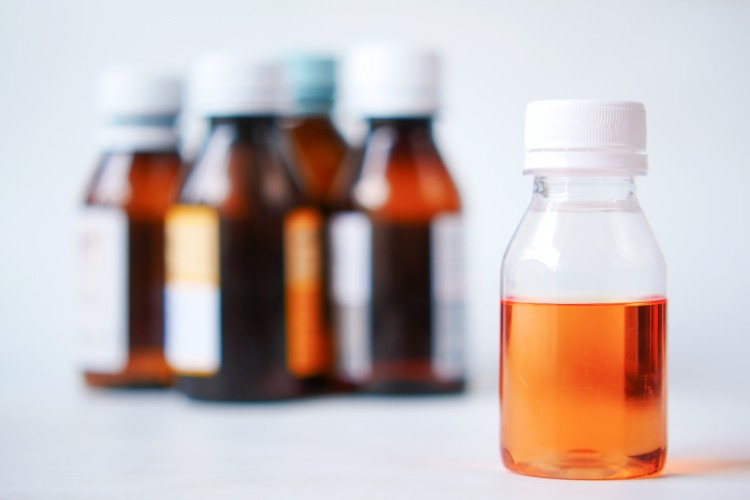
India’s pharma industry has again come under the scrutiny of WHO with the world body red-flagging an India-manufactured contaminated syrup sold in Iraq. This is not the first time that the pharma companies have brought shame to the country at the international level. The intergovernmental organisation had raised alerts on syrups contaminated with DEG and EG which are associated with dozens of deaths of children in countries such as Gambia, Cameroon and Uzbekistan. This time, the Chennai-based Fourrts Laboratories was found using excessive quantities of contaminants in its paracetamol syrup Cold Out.
According to health ministry data, less than one in every five pharma units in the country have WHO certification. This means even less than 20% pharma companies abide by international directives. The past incidents have brought into light several shortcomings in the pharma industry. This is both at the manufacturer’s end as well as the government’s end which leaves a wide gap in policy implementation and execution.
READ | India’s curbs on tech imports to shake up the market
While pharma industry is inclined to make profits by using below standard products or outsourcing manufacturing to cheaper outfits, they can afford to do so due to a lack of a proper system to keep a check on them. For instance, investigations into the Maiden Pharma case after Gambia deaths, revealed that Haryana’s drug monitoring department was functioning with less than 40% of its sanctioned staff strength.
The country also lacks both state-run and central drug testing laboratories without which scrutiny of drugs for safety and efficacy suffers. In a country that has the highest number of population, there are only 29 state government-run and two Central drug testing laboratories. Ramping up staff and under-resourced state regulatory bodies is a must in the fight against substandard medicines.
While India mandated testing of cough syrups before exports to prevent such instances earlier this year, despite such regulations the country continues to produce substandard medicines for exporting. The government had made glycol testing mandatory for all syrup and solvent manufacturers after serious concerns were raised about New Delhi’s drug safety approval standards. Earlier, the Central Drugs Standard Control Organisation (CDSCO) proposed testing of medicines at government labs before being exported.
The WHO has regularly flagged concerns about the quality of Indian generics which have been found with toxic content. At least seven Indian-made cough syrups have come under WHO radar and surveys by Indian authorities have also revealed serious shortcomings in at least 160 pharma units. While such cases have been in public knowledge since October last year, it was only last week that the government directed medicine manufacturers to abide by WHO standards as the government also woke up to the menace in the pharma industry. However, unless the policymakers come up with strong laws to punish the offenders, no concrete solution can come out.
And it is not just the cough syrups which have come under global scrutiny. Two deaths were recently reported in Sri Lanka after the victims were administered Indian-made anaesthetic drugs. Just last month, eye drops manufactured in India had caused eye infection in about 30 patients and blindness in 10 in Sri Lanka. Eye drops causing infections, blindness and even deaths were reported a few months ago in the United States as well and the Atlanta-based Center for Disease Control and Prevention (CDC) found a highly drug-resistant bacteria in them.
Need for stronger pharma industry regulations
In May 2023, Policy Circle had written about the need of ramping up regulations and how effective compliance is much needed to rebuild India’s global reputation in the pharma industry. The country’s policy makers on the other hand have prevaricated on addressing regulatory loopholes. Time and again, they have either denied complicity as in the Gambia case or resorted to shallow solutions such as cancelling the licences of violators. In the Gambia case, the Indian drug regulator even went on to say that it was a conspiracy by WHO to malign India’s image. The truth of the same came out after test results from Switzerland and Ghana confirmed the presence of toxic chemicals in the cough syrup sample from Gambia.
It is also worth noting that despite a series of allegations against Indian manufacturers, the country has been on a spree to water down existing laws with a view to increase ease of doing business. Last year in August, the Union ministry for health and family welfare published the New Drugs, Cosmetics and Medical Devices Bill which received flak from the medical fraternity and analysts for diluting the rules. The aid Bill introduced provisions that made it easier to pass clinical tests for drugs even if they fail on certain quality parameters. It also accommodated the pharmaceutical industry’s demand to decriminalise some of the offences under the then existing law.
For a country which looks to become a global hub in manufacturing, the ongoing repeat violations do not look good. India’s drug manufacturing industry is a major player in the global pharmaceutical market and ranks as the third-largest exporter in the world by volume and the 13th largest by value. 20% of global exports for generic drugs in terms of volume come from India. While enforcing the WHO’s protocols must be the first step towards much needed regulatory overhaul, the pharma industry must hold itself up to high accountability as it is the people’s lives that they are dealing with. Nothing less is expected of the sector.

